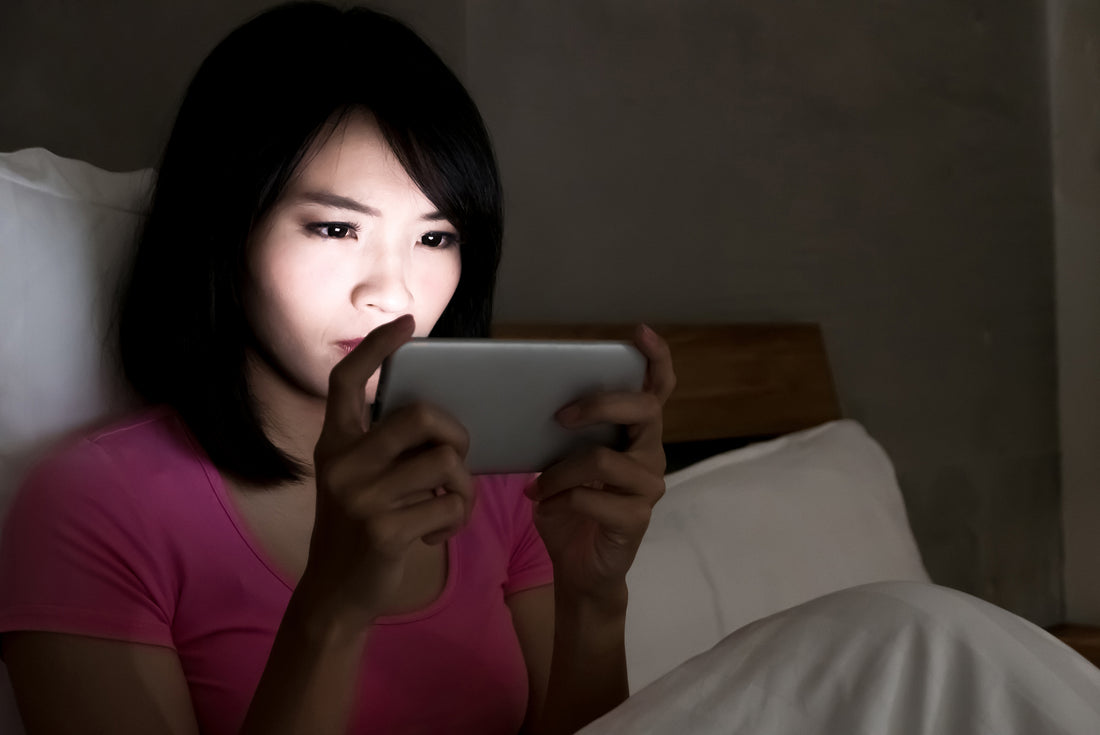In addition to food and water, sleep is one of the few things that all humans actually need. Unfortunately, getting the right amount of shut-eye each evening is getting harder and harder due to technology. Putting down your phone before bedtime and giving your eyes a break from screens throughout the day is becoming more of an important factor in achieving healthy, restful sleep.
How much sleep do we need each night?
The amount of sleep humans need each night changes with age. Infants need about 17 hours a day, and we tend to need less and less as we grow older. Most adults require about seven to nine hours per night. However, some are fine on as little as six, while others need ten hours.
The best advice is to listen to your body. If you wake up feeling tired after only getting seven hours, try going to bed earlier to see if an hour or two of extra sleep makes a difference.
Screen time disrupts circadian rhythm
The circadian rhythm is a 24-hour sleep/wake cycle that’s often referred to as our “body’s internal clock.” Our bodies produce a hormone called cortisol in the morning as the sun rises to make us awake and alert. As daylight fades to nighttime and darkness, our bodies produce a hormone called melatonin to induce feelings of sleepiness.
This 24-hour cycle is disrupted by back-lit devices like computers, phones and tablets, which emit short-wavelength light called “blue light.” Blue light can delay or reduce our melatonin production, which can keep us up at night.
Recognize the effects of sleep deprivation
Not enough sleep for sustained periods can lead to sleep deprivation, which has negative effects on nearly every system in our body. For example, sleep deprivation leaves our brains feeling foggy and puts us in a cranky mood the next day. It can also affect our immune systems, making it more difficult to fight off infections.
Some other drastic effects of sleep deprivation include diabetes, obesity, chronic respiratory infections, high blood pressure and much more.
Tips for limiting screen time at night
Scrolling through social media or watching a show on Netflix before going to sleep are nightly habits for many of us. While it may not seem like a big deal, your phone and TV can emit enough blue light to stop melatonin production for the evening. And without melatonin, you’ll have a hard time falling asleep.
The solution? Take screens out of the bedroom. That means no TV, phones, tablets, laptops or e-readers. If you train yourself to only use your bedroom for sleeping, you’ll eventually sleep better at night.
Nighttime screen usage is necessary for those working or studying late into the evening. If there’s no workaround for late-night screen time, try to take more frequent breaks throughout the day. Additionally, invest in a pair of blue-light blocking glasses. The less blue light you’re exposed to during the day, the better you’ll sleep at night.
Put down the screens and sleep better
Putting your phone, tablet or computer away before bed might not be easy. But you’ll sleep better at night and have more productive days if you’re able to cut the screen habit. Start by limiting your screen time tonight and see how much better life can be with a good night’s rest.
Explore meal plan options today to make sure your body gets everything it needs to grow strong.
